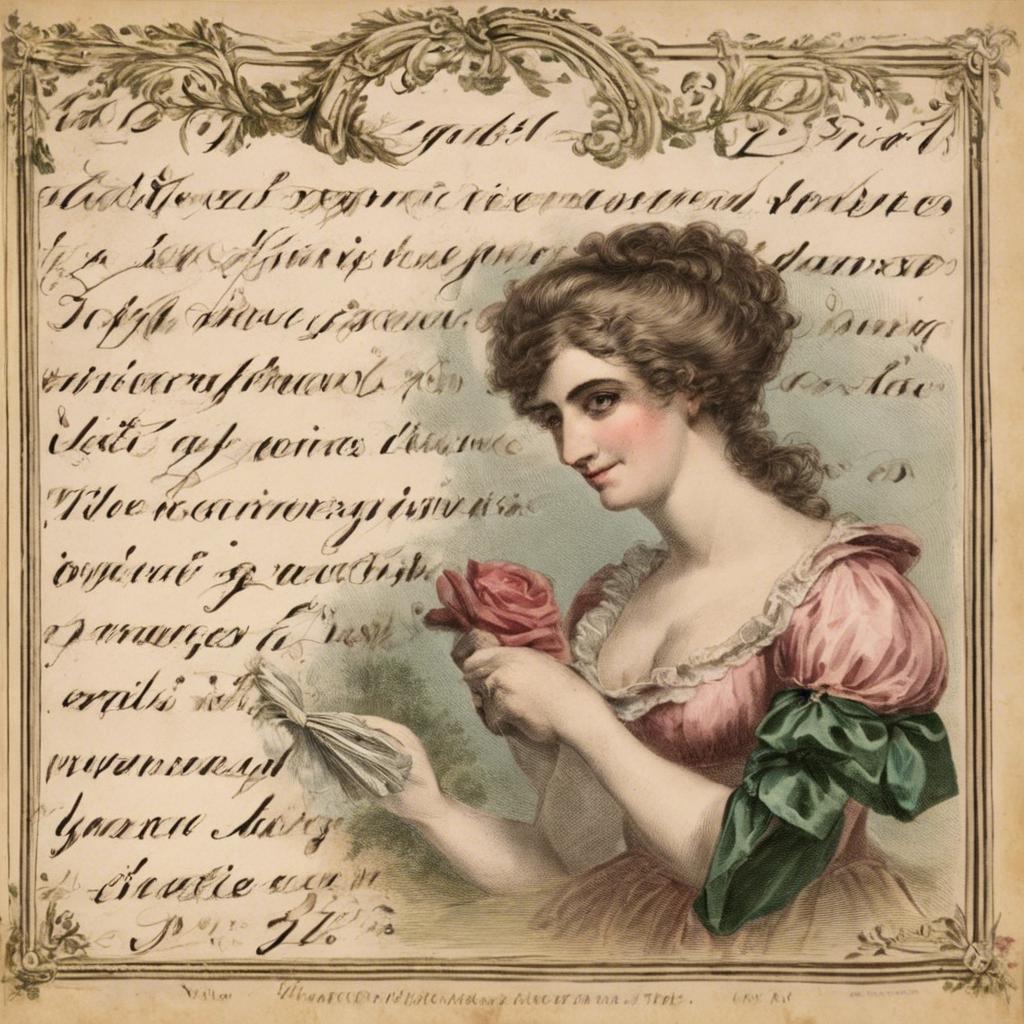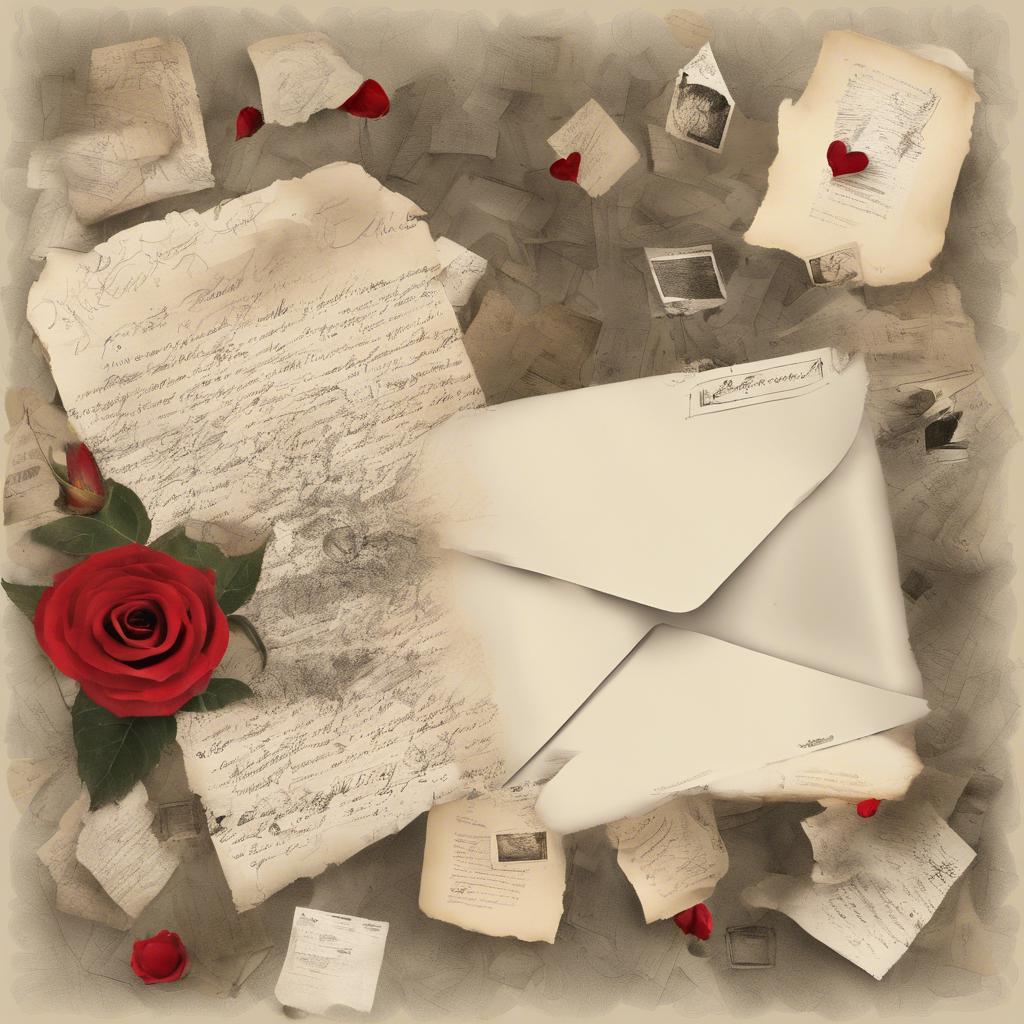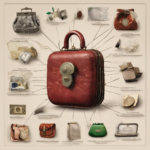In the enchanting world of Regency-era England, love letters were cherished as intricate expressions of emotion and desire. These handwritten missives served as the primary means of communication between lovers, offering a glimpse into the passionate affairs and romantic courtships that defined the era. Join us as we delve into the art of Regency-era love letters, exploring their significance, style, and enduring legacy in the realm of historical romance.
Step Into the World of Cheryl Bolen
Dive into the enchanting stories of love, intrigue, and elegance set in the Regency Era. Cheryl Bolen's novels offer timeless romance and captivating tales that will leave you wanting more.
Explore Cheryl Bolen's Books Now
Heading 1: Romantic Language and Sentiments in Regency Era Love Letters
Romance in the Regency era was often expressed through eloquent language and heartfelt sentiments in love letters. The art of letter writing was highly valued during this time, as it was a primary means of communication between lovers who may have been separated by distance or social conventions.
Regency era love letters were filled with poetic language, expressive metaphors, and declarations of undying affection. Sentiments of love, longing, and devotion were intricately woven into the words, creating a sense of intimacy and passion that transcended time and space.
Love letters from the Regency era were cherished keepsakes, often carefully preserved and treasured for generations. The emotional depth and sincerity of these letters spoke volumes about the depth of the love shared between the sender and the recipient, capturing the essence of romance in a bygone era.
Heading 2: The Art of Letter Writing: Techniques and Conventions in Regency Era Correspondence
In the Regency Era, love letters were an essential form of communication between lovers, allowing them to express their deepest emotions and sentiments in a thoughtful and romantic manner. These letters were often written with meticulous care, following specific techniques and conventions that were unique to the time period.
One of the key techniques used in Regency Era love letters was the use of elaborate and formal language to convey feelings of love and devotion. Flowery prose, poetic language, and heartfelt declarations were commonly found in these letters, creating a sense of intimacy and passion between the sender and recipient.
Furthermore, Regency Era love letters often followed a specific structure, with a careful balance of personal sentiments, expressions of affection, and references to shared memories and experiences. The use of proper salutations, closings, and signatures added a sense of formality and elegance to these letters, making them a cherished keepsake for the recipients.
Heading 3: Preserving and Analyzing Regency Era Love Letters for Historical Insights
Preserving and analyzing Regency Era love letters provides a unique insight into the romantic sentiments and societal norms of the early 19th century. These handwritten treasures offer a glimpse into the hearts and minds of individuals from a bygone era, shedding light on the language of love and courtship practices of the time.
Key points for preserving and analyzing Regency Era love letters:
- Physical preservation: Proper storage in acid-free folders or boxes, handling with clean hands, and avoiding exposure to sunlight can help maintain the integrity of these historical documents for future generations.
- Transcription and translation: Some Regency Era love letters may be written in archaic or faded handwriting, requiring careful transcription and translation to ensure their content is accurately preserved and understood by modern readers.
- Historical context: Studying the historical context in which these love letters were written can regency era journals”>provide valuable insights into the relationships, social customs, and cultural norms of the Regency Era.
In addition to offering a window into the personal lives of individuals from the past, Regency Era love letters can also provide researchers with valuable data for understanding broader historical trends in areas such as language usage, gender roles, and emotional expressions. By preserving and analyzing these intimate correspondence, historians can enrich our understanding of this fascinating period in history and gain a deeper appreciation for the complexities of human relationships across time.
Heading 4: Recommendations for Collecting and Studying Regency Era Love Letters for Research and Enjoyment
When collecting and studying Regency Era love letters for research and enjoyment, it is important to consider the following recommendations:
1. Choose a Theme
- Focus on a specific aspect of love during the Regency Era, such as courtship rituals, marriage proposals, or long-distance relationships.
- Select letters that reflect the chosen theme to maintain a cohesive collection.
2. Understand the Context
- Research the historical background of the Regency Era to better interpret the content of the love letters.
- Consider the societal norms and expectations of the time period when analyzing the language and sentiments expressed in the letters.
3. Utilize Digital Resources
- Explore online archives and databases dedicated to preserving Regency Era love letters for easy access to a wide range of primary sources.
- Take advantage of digital tools for translating and transcribing handwritten letters to enhance the study and enjoyment of the collection.
The Way Forward
the art of writing love letters during the Regency era was a delicate and charming practice that captured the essence of courtship and romance in a bygone era. From the eloquent language to the exquisite stationery, each letter was a testament to the heartfelt emotions of the sender. As we reflect on these treasured pieces of history, we are reminded of the timeless beauty and sincerity of expressing love through written correspondence. The tradition of exchanging love letters may have evolved over the centuries, but the sentiment and sentimentality of these Regency era missives continue to inspire us to this day. May we continue to cherish and preserve the art of love letters as a tribute to the enduring power of love itself.


